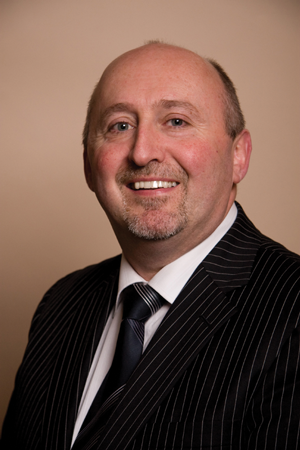Historian Terence Dooley previews the decade of centenaries
 Historian Terence Dooley sees a decade of centenaries as an opportunity to hear forgotten voices and reassess our Irishness.
Historian Terence Dooley sees a decade of centenaries as an opportunity to hear forgotten voices and reassess our Irishness.
Earlier this month I visited the Pearse Museum in Rathfarnham where the curator, Brian Crowley, gave me a tour of the fascinating exhibition ‘Object Lessons’ which had recently been opened by Minister Brian Hayes.
One object in particular caught my attention: a British military medal which had been presented to Michael Mallin for service with the Royal Scots Fusiliers on the Punjab frontier in the 1890s. On 8 May 1916, Mallin was executed for his role in the Easter Rising. He had retained the medal as a memento, a means of remembering a previous part of his life; now, the exhibition tells us, it ‘compels us to deal with the complexity of history.’ The decade which lies ahead is challenging us to do likewise.
Oddly, 1911 passed by without much notice of one of the most significant historical events of the twentieth century from a British and Irish perspective: the abolition of the veto powers of the House of Lords which made the passing of home rule inevitable and so set in train much of what was to follow.
In 1911, Ireland was at a threshold. The belle époque had not entirely passed it by. The prosperous Catholic middle classes had lived lives of comfort with promise for the generations to come when they would govern in a Dublin-based Home Rule parliament subordinate to Westminster. However, events in Ireland of the decade which followed – the passing of home rule, the rise of militant Ulster unionism, the establishment of the Irish National Volunteers, the First World War, the War of Independence and Civil War – profoundly reshaped the island as a whole and its relationship with Britain and the wider world.
Of major import was the Easter Rising of 1916, subsequently celebrated by nationalists as one of the iconic turning points in modern Irish history. The problem with iconic events is that they are often deemed to have happened in some sort of vacuum; to really understand 1916 it needs to be interpreted in its much wider global aspect and particularly in the context of the Great War. Scholarship has now provided that context so it is to be presumed that the commemorations to mark its 100th anniversary will be very different to those which marked the 50th, not leastly in the exploration of the complexities of competing ideological nationalist influences.
The rising was not the glorious event celebrated in nationalist lore but what revolution (if the term can be applied) ever was? And it is no bad thing that historians’ reappraisal of the events from 1912 to 1922 has probably taken public sympathy away from those who saw the gun in Irish politics as a glorious thing. However, not everything about the 1916 Rising was negative and the ideological aspirations of its leaders, as espoused in the Proclamation of Independence, need to be appraised in a balanced and scholarly fashion with due recognition of the historical context in which they were formulated.
To achieve scholarly balance it is essential that all records relating to the period, in whatever repository, should be made available for scholarly research. When the Government begins to dispense funding for various projects this should be a priority. In order to commemorate appropriately, we must investigate thoroughly.
Commemoration and remembrance do not always sit comfortably side by side. Commemoration is selective: to remember some event or some body is to forget something or somebody else and this is often deliberate as much as accidental. In every aspect of life it is to the victor the spoils, to the vanquished oblivion. It is important in the years ahead that commemorative committees remember those who were forgotten, expelled from the national patrimony north and south of the border.
The Church of Ireland Working Group on Historical Commemorations and Centenaries recently acknowledged that the events of 1912 to 1922 were of “great significance” to its community and resolved that “any commemoration should be to enhance our understanding of Church of Ireland attitudes at the time and to use such lessons to help build a shared future. This should not be done in a judgmental manner.” It is a worthy aspiration for if commemoration is inclusive, from that will follow an understanding of what it means to be Irish.
Dr Terence Dooley lectures at the National University of Ireland, Maynooth.





